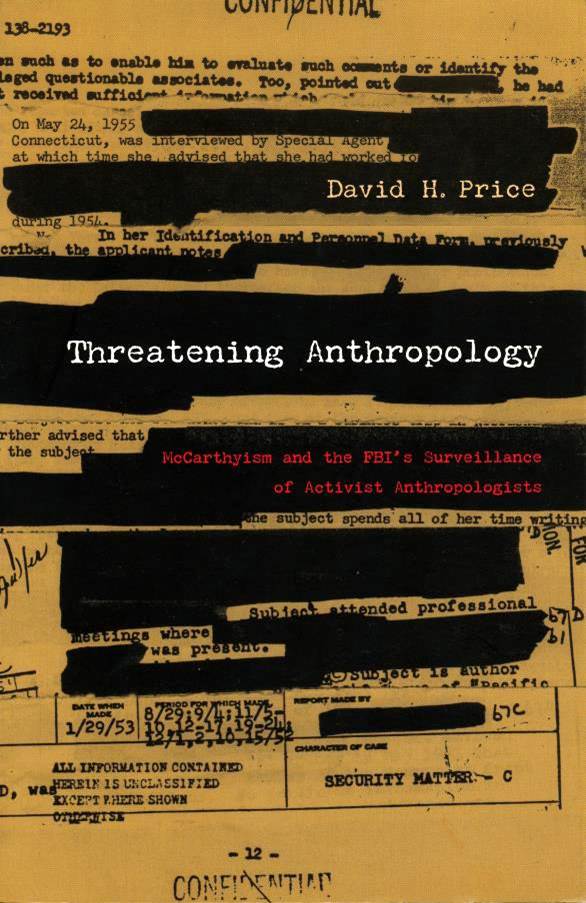Welcome to Our Summer Interns!
Meet Grayson and Grace—two of our outstanding summer interns at the Ohio History Connection!
 In July of 1948, Richard G. Morgan, considered by the late James Griffin to have been the finest Curator of Archaeology the Ohio Historical Society has ever had, was fired from his position, because he was suspected of being a Communist. This sad chapter in Ohio’s history is ably told in David Price’s book Threatening Anthropology: McCarthyism and the FBI’s Surveillance of Activist Anthropologists. Sara Nuber Thomas, a current volunteer in the Archaeology department who is helping to catalog our old correspondence files, recently uncovered a copy of a letter from Morgan to Emerson Greenman, a former OHS curator who had left for the University of Michigan, that reveals a previously unrecorded episode in this unfortunate affair. Price chronicles how Morgan was largely left to his fate by the various academic and professional societies that could have been expected to have come to his defense. There was, however, one important exception.
In July of 1948, Richard G. Morgan, considered by the late James Griffin to have been the finest Curator of Archaeology the Ohio Historical Society has ever had, was fired from his position, because he was suspected of being a Communist. This sad chapter in Ohio’s history is ably told in David Price’s book Threatening Anthropology: McCarthyism and the FBI’s Surveillance of Activist Anthropologists. Sara Nuber Thomas, a current volunteer in the Archaeology department who is helping to catalog our old correspondence files, recently uncovered a copy of a letter from Morgan to Emerson Greenman, a former OHS curator who had left for the University of Michigan, that reveals a previously unrecorded episode in this unfortunate affair. Price chronicles how Morgan was largely left to his fate by the various academic and professional societies that could have been expected to have come to his defense. There was, however, one important exception.
John Bennet, an assistant professor of Anthropology in the Ohio State University’s Department of Sociology, had worked with other OSU faculty members to develop a cooperative archaeological research program with Morgan. When Morgan was threatened with being fired, Bennet did everything he could to help — even co-authoring a handbill with Morgan, which they sent to colleagues and institutions informing them of the facts of the case and requesting their support. In April of 1948, Bennet wrote a letter to the trustees of the Ohio State Archaeological and Historical Society (now OHS) in support of Morgan. He warned that no qualified professional archaeologist would be willing to take Morgan’s job if they felt they could be subjected “to summary dismissal for vague charges without a hearing or consultation” (quoted in Price 2004:55). Bennet’s vigorous support might lead you to think that the Ohio State University’s administration supported Morgan, but that was by no means the case. Anxious to avoid the venomous ire of the McCarthyites, OSU was all too willing to throw its erstwhile partner under the bus. Since at least 1940, Morgan had been directing OSU Archaeology Field Schools, but in a letter dated May 19, 1948, Morgan informed Greenman that “the joint Ohio State University-Ohio State Museum field course and expedition” scheduled for that summer was cancelled, because the University “did not wish to approve me as a nominal member of their staff (due to the recent episode).” The “recent episode” to which Morgan referred was the accusation that he was a Communist. Price concluded his discussion of Morgan’s case with the following statement: “It is impossible to determine what the life and career of Richard Morgan might have been like had he not run afoul of conservative mid-century Ohio politics. It is likewise unknown to what extent his Ohio travails warned other anthropologists, academics, and would-be citizen activists of the dangers of becoming involved in progressive politics and the incipient civil rights movement. While these elements of Morgan’s story are unknowable with any degree of certainty, they are nonetheless questions of central importance to an understanding of the impact of McCarthyism on the development of American anthropology” (Price 2004:88). Morgan’s letter to Greenman reminds us of the terrible consequences that could follow from an accusation of Communist sympathies during this fear-filled period in our history.
Brad Lepper